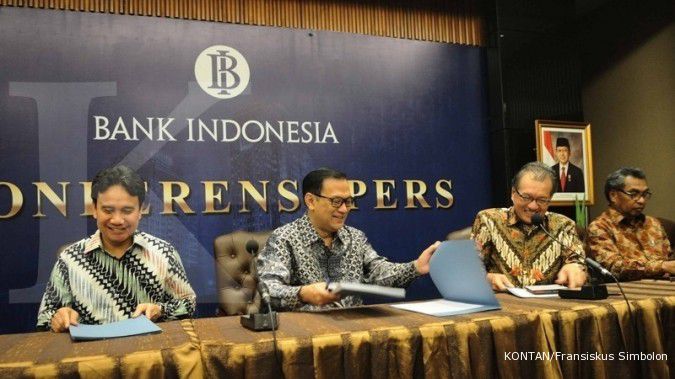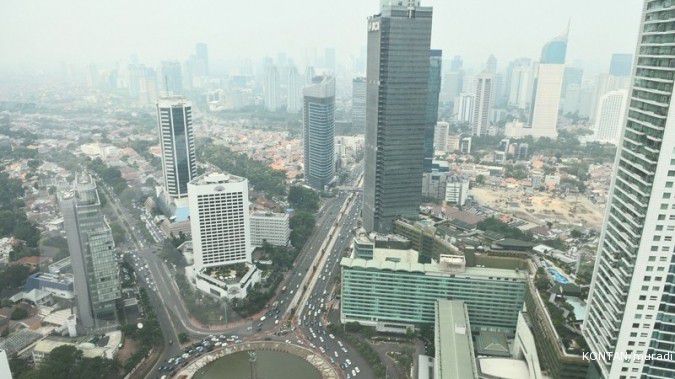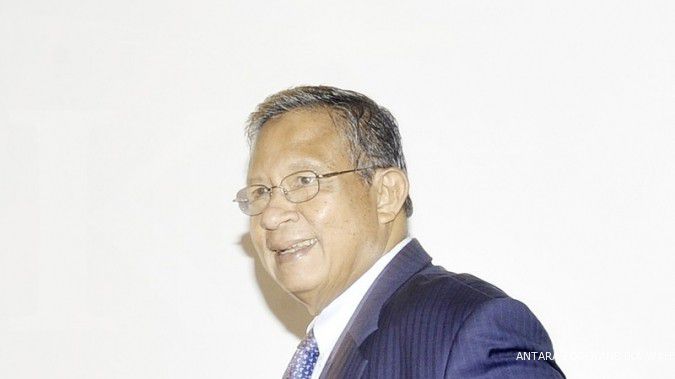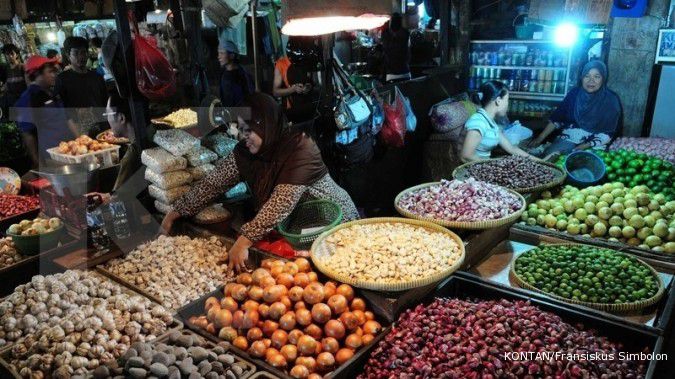JAKARTA. Despite signs of improvement in the country’s economic indicators, former Bank Indonesia (BI) governor Darmin Nasution has called on the central bank not to cut its interest rates too quickly in order to maintain economic stability.
Darmin said on Thursday that the monetary policy should work in tandem with the fiscal-tightening policy adopted by the government in order to maintain economic stability. “With the current policy framework, interest rates should not be adjusted too soon,” he said.
The suggestion came despite the fact that Darmin, who stepped down as BI governor only last year, was known for his “dovish” reputation — a term coined for a central banker with a tendency to keep interest rates low to spur economic growth.
During his three-year tenure as governor, he cut the BI rate aggressively until it hit its historic low of 5.75 percent, a level that he kept for 15 consecutive months until he was replaced by Agus Martowardojo in May last year.
Agus, however, has taken the opposite approach to his predecessor.
The new BI governor quickly moved to raise the policy rate by a cumulative 175 basis points to 7.5 percent within his first seven months in office, in his efforts to combat soaring inflation and to safeguard the rupiah, which is under pressure from the country’s high current-account deficit.
“What I want to convey is that this [higher interest rates] is necessary to slow economic growth and to ease pressure on the balance of payments,” said Darmin. “It’s unfortunate, but the question is: Is any other option available?”
The bout of interest-rate hikes has helped stabilize the economy. Recently, Indonesia has seen improvements in its inflation and current-account data, with the country posting a US$1.5 billion trade surplus in December — more than double economists’ forecasts.
The latest positive developments have prompted suggestions that the central bank will shift its policy gear to spur growth. Economists from Credit Suisse, for instance, have predicted BI will cut its key interest rate by 100 basis points this year.
BI will hold its next board of governors’ meeting on Feb. 13 to decide any adjustments to its rates.
However, the central bank has shown little inclination to cut interest rates and shift to a policy of growth, in line with Darmin’s suggestions.
“Our economy has shown improvement. But, the progress is still ongoing and we cannot say that the economy is already in good shape,” Agus said on Thursday.
“We shall maintain our tight-bias stance,” he added, noting that the central bank would “not hesitate” to make upward adjustments to rates.
The Central Statistics Agency (BPS) reported on Wednesday that the country’s economy grew in the fourth quarter of last year by 5.72 percent, compared to the 5.62 percent in the previous quarter, despite volatility in the financial markets.
Although overall growth in 2013 declined from 6.3 percent in 2012 to 5.78 percent, it was the second highest among G20 countries after China.
Growth in investments declined to 4.7 percent from 9.8 percent the previous year, but higher growth in exports spurred the country’s economic growth to slightly below 6 percent. Exports were up due to improvements in the global economy, notably in the US, the government has said. (Satria Sambijantoro)
Bank Indonesia urged to keep interest rates high
February 07, 2014, 01.37 PM
/2013/05/27/1145407423.jpg)
ILUSTRASI. Return reksadana pendapatan tetap akan membaik di 2023 karena The Fed tidak terlalu agresif menaikkan bunga.
Reporter: Barratut Taqiyyah
| Editor: Barratut Taqiyyah Rafie
Latest News
-
February 24, 2026, 03.38 PM
Eni to Reach Final Investment Decision for Indonesia Gas Projects Next Month
-
February 24, 2026, 01.00 PM
Asia Stocks Try to Steady after Wall Street Selloff Sims Mood
-
February 23, 2026, 04.50 PM
Wall Street Futures and Dollar Slide on Trump Tariff Tumult
-
February 23, 2026, 02.17 PM
Indonesia's Government Spending Jumps 26% in January 2026
-
February 23, 2026, 01.47 PM
Indonesia's Government Spending Jumps 26% in January
-
February 21, 2026, 06.00 AM
Indonesia's Pertamina to Maintain Bidding Process for US Energy Imports
-
February 20, 2026, 01.23 PM
Indonesia Secures 19% Tariff Deal with US, Palm Oil and Other Commodities Exempt
-
February 20, 2026, 08.33 AM
Indonesia, US Sign Agreement on Reciprocal Trade, Indonesian Ministry Says
-
February 19, 2026, 08.12 AM
Indonesia, Freeport Units Sign MoU to Extend Mining Permit beyond 2041













